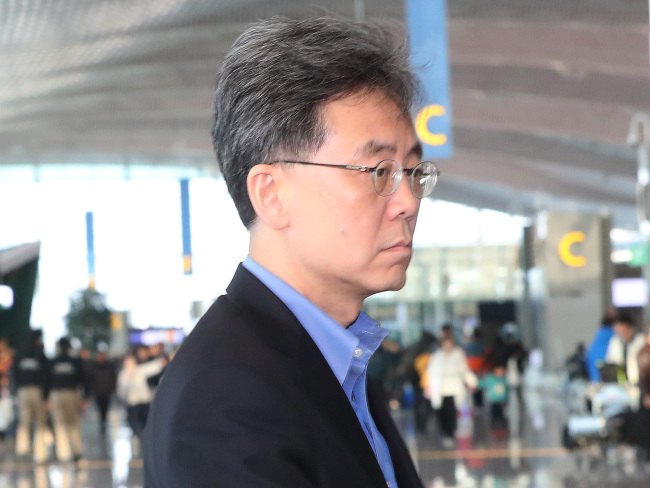Amid mounting offensives from Washington on key export products, South Korea’s trade department is locking horns with the finance sector in its push to expand its trade negotiating muscle.
The Ministry of Trade, Industry and Energy is working on a restructuring proposal to elevate its Office of Trade Negotiations from its current director-led organization to an assistant minister-led one, and also to increase its staff by 50, according to officials on Wednesday.
Empowered by President Moon Jae-in’s earlier pledge to fully buttress the trade negotiation body, the Trade Ministry drafted a plan in November last year which initially involved a personnel increase by 80 or more.
“We have upgraded the trade negotiating organization in the latest government restructuring plan, so that we may stand equal to the US counterparts (in the upcoming free trade deal talks),” the president said in his August address last year.
Of the 279 incumbent staff members of the ministry’s trade sector, some 160 are directly involved in trade policies, cooperation and negotiations while the rest work in trade investment issues. The given manpower is about half that of the US Trade Representative.
 |
Trade Minister Kim Hyun-chong leaves for Washington DC on Sunday as part of an outreach program to explain Seoul‘s trade policies to US lawmakers, government officials and business leaders. (Yonhap) |
“We plan to recruit senior officials with trade expertise and a sufficient number of working-level staff in order to build a competent organization specializing in trade regulations,” Trade Minister Kim Hyun-chong said, repeatedly urging for the restructuring plan implementation.
It is also crucial that the headquarters have another vice-ministerial official who may represent state affairs at official inter-state negotiating tables, the Trade Ministry has claimed. Currently, only Trade Minister Kim and Deputy Trade Minister Kang Sung-chun qualify for such occasions.
The Ministry of Interior consented to the expansion plan, on condition that the number be reduced to 50, but it was the Ministry of Strategy and Finance that disapproved of the status promotion of the organization, citing administrative inefficiency and lack of budget.
“There are already too many senior officials compared to the overall size of the Trade Ministry,” said an official of the Finance Ministry in its reasons for rejecting the restructuring blueprint.
Despite the persisting disparity, however, the recently elevated trade pressure from the US administration has amplified the need for the Trade Ministry‘s bigger influence.
US President Donald Trump on Monday said that he would increase tariffs up to 24 percent for all steel imports if necessary to revive the US domestic industry, following an earlier safeguard motion to increase tariffs on imported washing machines and solar cells and modules.
All of these measures heavily affected export-dependent Korea’s key manufacturers, including market champions such as Samsung Electronics, Hanwha Q-cells, and Posco.
“Trade issues have risen to be a key pending issue for the Korean government,” said Chung Chul, chief of the international trade department at Korea International Economic Policy.
“Should the two ministries fail to reach a consensus, a higher-level government official should step in and settle the issue in a rapid pace.”
By Bae Hyun-jung (
tellme@heraldcorp.com)








![[Weekender] Korea's traditional sauce culture gains global recognition](http://res.heraldm.com/phpwas/restmb_idxmake.php?idx=644&simg=/content/image/2024/11/21/20241121050153_0.jpg)